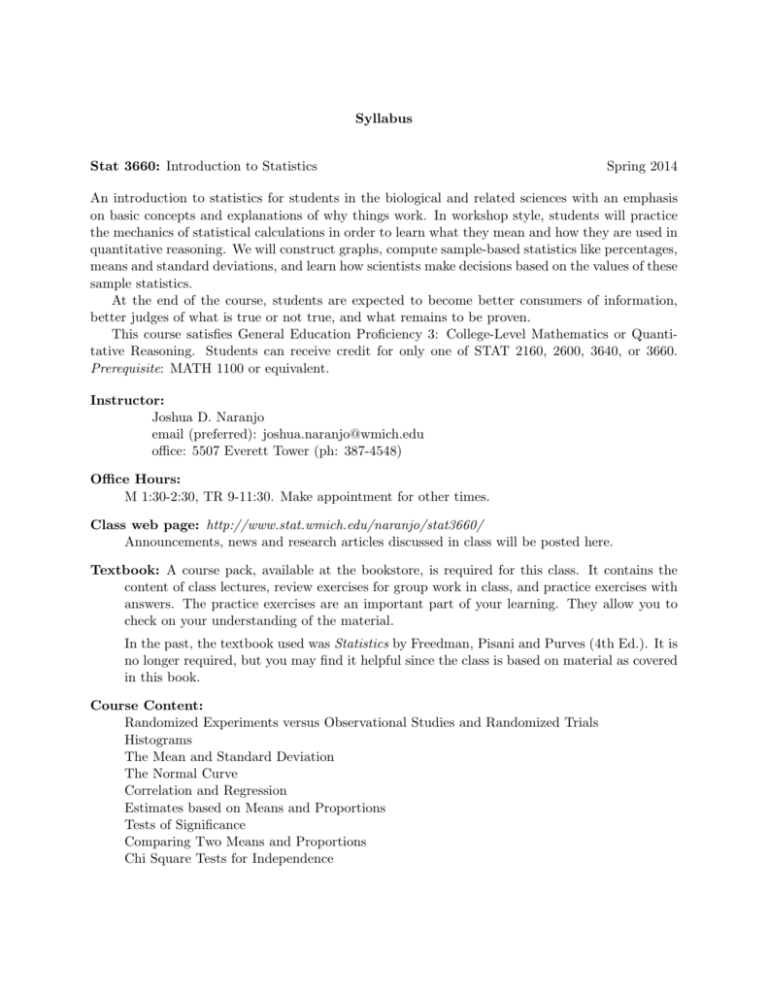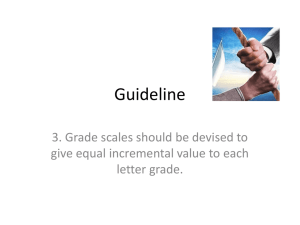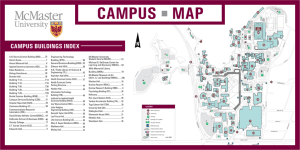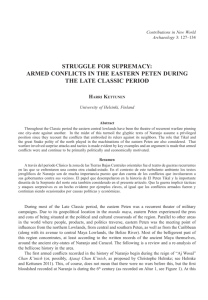Syllabus Stat 3660: Introduction to Statistics Spring 2014 An
advertisement

Syllabus Stat 3660: Introduction to Statistics Spring 2014 An introduction to statistics for students in the biological and related sciences with an emphasis on basic concepts and explanations of why things work. In workshop style, students will practice the mechanics of statistical calculations in order to learn what they mean and how they are used in quantitative reasoning. We will construct graphs, compute sample-based statistics like percentages, means and standard deviations, and learn how scientists make decisions based on the values of these sample statistics. At the end of the course, students are expected to become better consumers of information, better judges of what is true or not true, and what remains to be proven. This course satisfies General Education Proficiency 3: College-Level Mathematics or Quantitative Reasoning. Students can receive credit for only one of STAT 2160, 2600, 3640, or 3660. Prerequisite: MATH 1100 or equivalent. Instructor: Joshua D. Naranjo email (preferred): joshua.naranjo@wmich.edu office: 5507 Everett Tower (ph: 387-4548) Office Hours: M 1:30-2:30, TR 9-11:30. Make appointment for other times. Class web page: http://www.stat.wmich.edu/naranjo/stat3660/ Announcements, news and research articles discussed in class will be posted here. Textbook: A course pack, available at the bookstore, is required for this class. It contains the content of class lectures, review exercises for group work in class, and practice exercises with answers. The practice exercises are an important part of your learning. They allow you to check on your understanding of the material. In the past, the textbook used was Statistics by Freedman, Pisani and Purves (4th Ed.). It is no longer required, but you may find it helpful since the class is based on material as covered in this book. Course Content: Randomized Experiments versus Observational Studies and Randomized Trials Histograms The Mean and Standard Deviation The Normal Curve Correlation and Regression Estimates based on Means and Proportions Tests of Significance Comparing Two Means and Proportions Chi Square Tests for Independence Evaluation: Monday group work (100 pts.) Wednesday quizzes (300 pts.) Final Exam, Tue April 22, 10:15 am-12:15 pm (100 pts.) Total = 500 pts. Grading Procedure: (Total score)/5 = Final Ave. [Final Ave. ≥ 88.0] = A [Final Ave. ≥ 84.0] = BA [Final Ave. ≥ 75.0] = B [Final Ave. ≥ 70.0] = CB [Final Ave. ≥ 60.0] = C [Final Ave. ≥ 55.0] = CD [Final Ave. ≥ 50.0] = D Attendance: Attendance is required. There will be no make-up for missed group work or quizzes. To account for unavoidable absence (e.g. due to illness), the 2 lowest group work scores and the lowest quiz score will be dropped before calculating your final average. Grades in statistics classes are highly correlated with attendance. Later topics build on material learned in previous topics. If you must miss class, consult one of your colleagues to find out what you missed, and learn the material before the next class. Useful things to know about class: • Wednesday quizzes will cover new, previously unquizzed material (usually from Monday and the previous Wednesday). • Your quiz scores and group work scores will be entered into Elearning. Check these weekly and tell me if there are any discrepancies. If you have a wrong Elearning score, show me the group work or quiz within 2 weeks for appropriate correction. • The final exam is comprehensive, but 75% will come from Chapters 11-17. • Last semester, the median scores were: group work 91%, quiz 84%, and final exam 72%. The median grade was B. Out of 77 students, 22 got an A. Calculator: Bring a calculator to class (no cell phones are allowed). A TI-84 is an excellent choice, but a simpler calculator is sufficient. Calculator practice can be the difference between an A or a B grade. WMU Policy on Academic Dishonesty: You are responsible for making yourself aware of and understanding the policies and procedures in the Undergraduate Catalog that pertain to Academic Honesty (accessible online at goWMU > catalog > Academic Policies > Students Rights and Responsibilities > Student Academic Conduct). These policies include cheating, fabrication, falsification and forgery, multiple submission, plagiarism, complicity and computer misuse. You should consult with me if you are uncertain about an issue of academic honesty prior to the submission of a group work or test.




